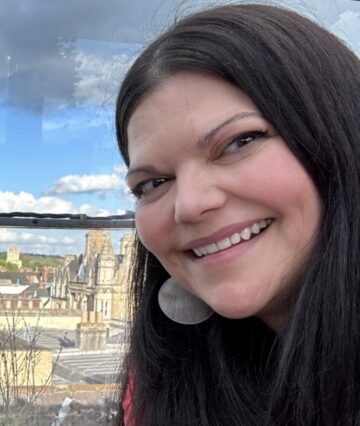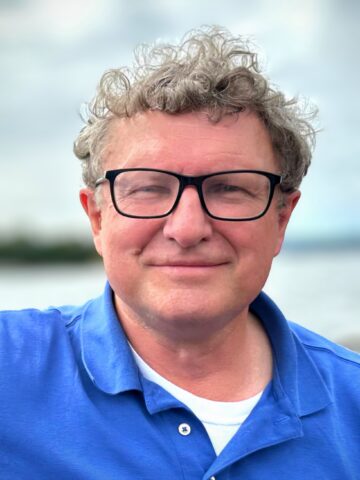
Source: LGriffin
Seminar on the 26 February 2025
Sonic postcards as an arts-based approach to encourage collaboration.
In this session, we would like to discuss a recent project that explores some of the ways in which arts-based thinking and practice might intervene productively to support transformative action and environmental planning at the local level. A project with George Revill from the Open University used arts-based practice to find ways of opening up spaces of engagement.

Source: GReville
Our work was part of an attempt to find ways to use creative and co-produced materials more systematically within policy engagement. We co-produced a short sonic documentary called Fishing for Life, which is currently being hosted at the Wells Maltings Arts Centre.
‘Fishing for Life’ is a sound work called a ‘sonic postcard’ co-created with stakeholders, fishers, researchers and a sound artist for a UKRI project called Sounding Coastal Change. Fishing for Life explores the social, economic, and environmental challenges facing fishing communities and the strategies that fishers use to cope with them.
Sonic postcards are co-produced pieces made by publics, researchers and sound artists working together in ways which creatively assemble and voice otherwise ‘unheard’ human and non-human voices. They work with sound, voice, music and different kinds of listening. They do not tell or instruct but are instead intended to raise awareness to enhance sensitivity and attentiveness to issues that might otherwise be unnoticed. A primary aim is to stimulate better-informed discussion around the issues concerned in order to generate productive dialogue and learning.
We would like to reflect upon the social and political roles that arts-based methods and creative practices might perform and, in particular, how they can encourage and enable engagement, collaboration, and learning around environmental challenges: processes that are all central to successful planning.
Liza Griffin is an Associate Professor of Urban Health and Environmental Politics at UCL’s Development Planning Unit, Bartlett. Liza’s research on urban health and spatial politics includes projects on community responses to urban flooding, relationships between greenspaces and wellbeing, and placemaking for people with dementia. Her work on ‘Creative Practice and the Anthropocene’ explores how publicly engaged arts-based thinking and practice can intervene productively in the current environmental crisis.
George Revill is Professor of Cultural Historical Geography at The Open University. His work is concerned with landscape as a way of understanding past and contemporary experience and understanding of place, environment, and nature. Research projects involving creative practice include the AHRC funded “Earth in Vision,” focusing on digital broadcast archives and environmental history, “Sounding Coastal Change” and “Sounding Out Wells” which used sound and music to explore environmental and social changes on the North Norfolk coast.
Subscribe to the recordings:
Video hosted on the PAR YouTube channel.
Audio hosted on the PAR Buzzsprout channel and can be listened to on Spotify, Apple podcasts or on other RSS podcast apps.
The Practice As Research network with its resources is free and always will be, but it does of course incur costs to run and to keep it running. If you use it and benefit, enjoy it and would like to keep it going, please, consider leaving something in the tip jar. Thank you!